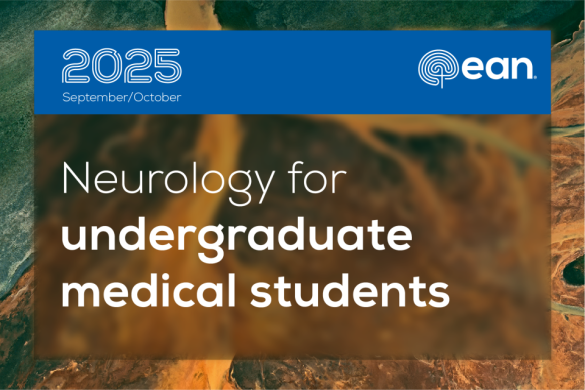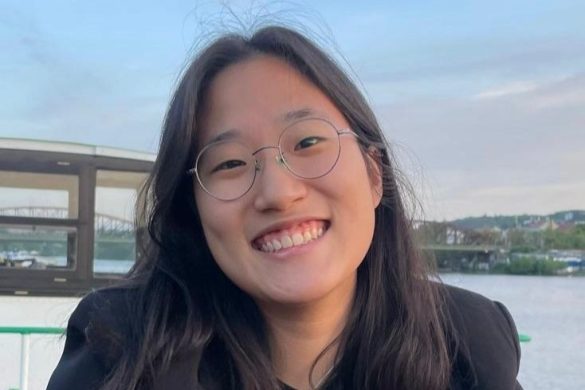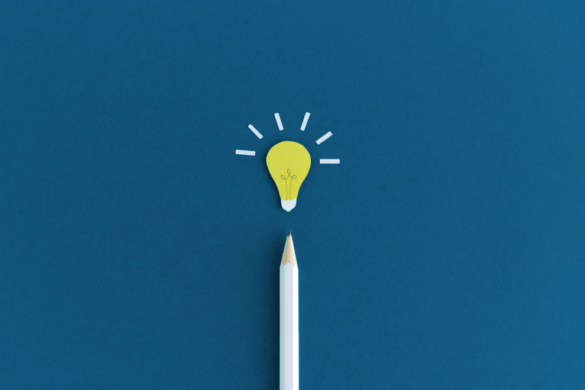The EAN Student Task Force is pleased to present the winners of this year’s ‘Why Neurology?’ essay competition.
The aims of the competition are to understand the incentives of choosing neurology as a subspecialty and to get to know EAN Student members better, whilst also making neurology more visible among undergraduate medical students. Recruiting young and driven future neurologists who could later become leaders and mentors in neurology is a high priority for the EAN, as is increasing the engagement of medical students in EAN activities.
To capture the ideas expressed by the future neurologists and to provide an exciting opportunity for undergraduate students, the winners of the ‘Why Neurology?’ essay competition have been invited to present their work at the congress, onsite in Budapest, on Sunday, 2 July, 13:30 – 14:00 (CEST) in the Scientific Theatre (see this session in the EAN 2023 programme planner).
We are proud to present the five winning essays below. Congratulations to the authors!
- Rishmita Thakur, India, 4th year student
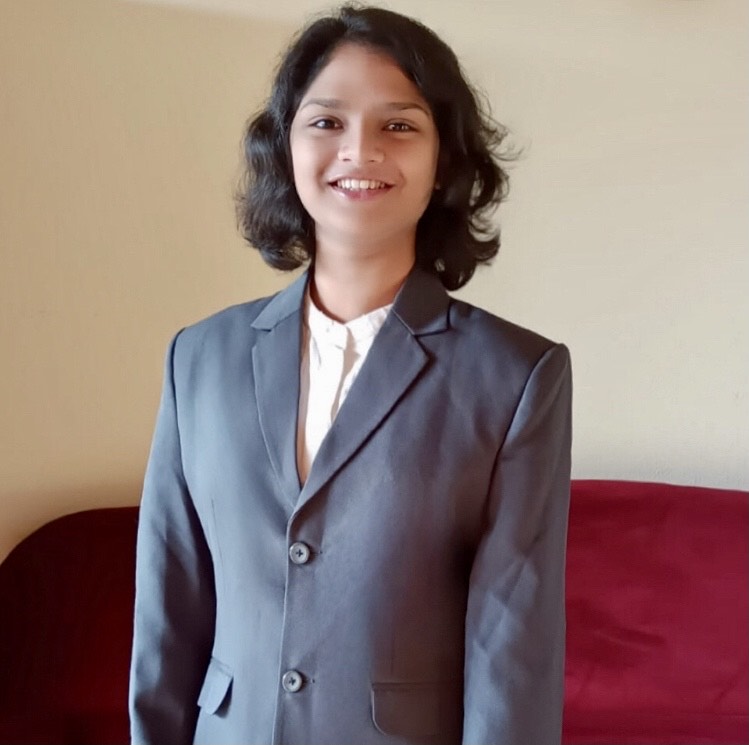
Have you ever been infatuated by anything completely unfamiliar to you?
What I mean is that there are some things that unwittingly inspire, excite, enthral, and move you from within, drawing you closer toward them. Many years back, I came across such a feeling when I heard Dr Wilder Penfield, a respected expert in neurosurgery state, “the brain is the organ of destiny. Its humming mechanism contains secrets that will determine the fate of the human race.”
…
The brain! Without a doubt! The only organ that has managed to safeguard all its secrets from us humans. Little did I know that such a casual acquaintance with ‘The Brain’ would develop into my lifelong obsession. My 12-year-old mind was buzzing with questions, searching for answers. Why is the brain so important when it’s the heart that keeps us alive? How does the brain keep all of our secrets? Why do some people think so differently, while others seem to have so much in common? These spurts of curiosity, as juvenile as they may appear, raised my acquaintance with neurology to an undying devotion!
Growing up, I always wanted to be a physician, but I was still perplexed by the specialisation choices I would have to make once I graduate medical school. Clinical rotations made me realise how amazing it would be to become a part of neurology. As a third-year medical student, I chose to observe in a paediatric ICU, where to my surprise, eight out of fifteen children were suffering from neurological diseases. Their disease itself was not surprising, but the fact that we know so little about nearly all of them was! Curious as to why we were still failing to grasp the most critical organ in the human body, I asked my attending Neurologist, “why is it that some patients walk out of the hospital planning their future treks while some leave with the uncertainty of even fetching themselves a glass of water?” to which she replied, “neurology is an exceptional field! You need the vision to hunt in the dark, and a perspective to explore the unfamiliar.” Those words helped me uncover the most important component of my life: my purpose! I started realising how fortunate those individuals were who get to start their day in an area that has the power of decoding an entire human being. It was beyond my comprehension how some miraculous technologies like deep brain stimulation, 3D brain mapping, prosthetic limbs, and neuro-genomics could transform, reconstruct, and reinvent prospects for people who were otherwise disabled. I realised that if medicine helps you to promote life, then neurology helps you understand it! I’ve seen many of my classmates dread this subject, scratching their heads over the brain’s infinitesimal mechanisms and spilling a fact; these are the exact moments that give me joy. The joy of being chosen! The joy of being able to observe, comprehend, adore, and interpret this marvel of the human body. I remember one of my doctors saying, “you don’t get to choose this as your profession; if you are capable enough, it will choose you!’ Being a good physician, in my opinion, is being NOBLE (Nifty, Optimistic, Beneficial, Limitless, and Extraordinary), and neurology is one of those sciences that allows you to practice all of these abilities. I hold a vision to practice the intricate art of performing examinations, to be the reason for someone’s smile, to provide hope to hopeless situations, to be able to help people experience and live all those simple moments they’ve been missing, to be able to help them recollect and rejoice those golden memories they’ve forgotten, and most importantly, to ‘not let go!’ And I know for a fact that this is what I would want to wake up to and practice for the rest of my life!
Irrespective of how tedious it seems, studying and comprehending the brain is a privilege. It is a constantly expanding field full of discoveries, technology, art, and evolution, which I would be honoured to serve in the nearest future. I have no comments for people who believe neuroscience is a repetitive, complex specialty, but I do want the remaining 2% of crazy dreamers like me to know that:
If you got the courage to dream, then you can do it!
If you ever loved, it will love you back,
If you believe, one day your beliefs will come true.
Neuroscience is the Art of Medicine!
Trust, hustle, dream and wait for it to choose you!
- Robin Stinissen, Belgium, 6th year student
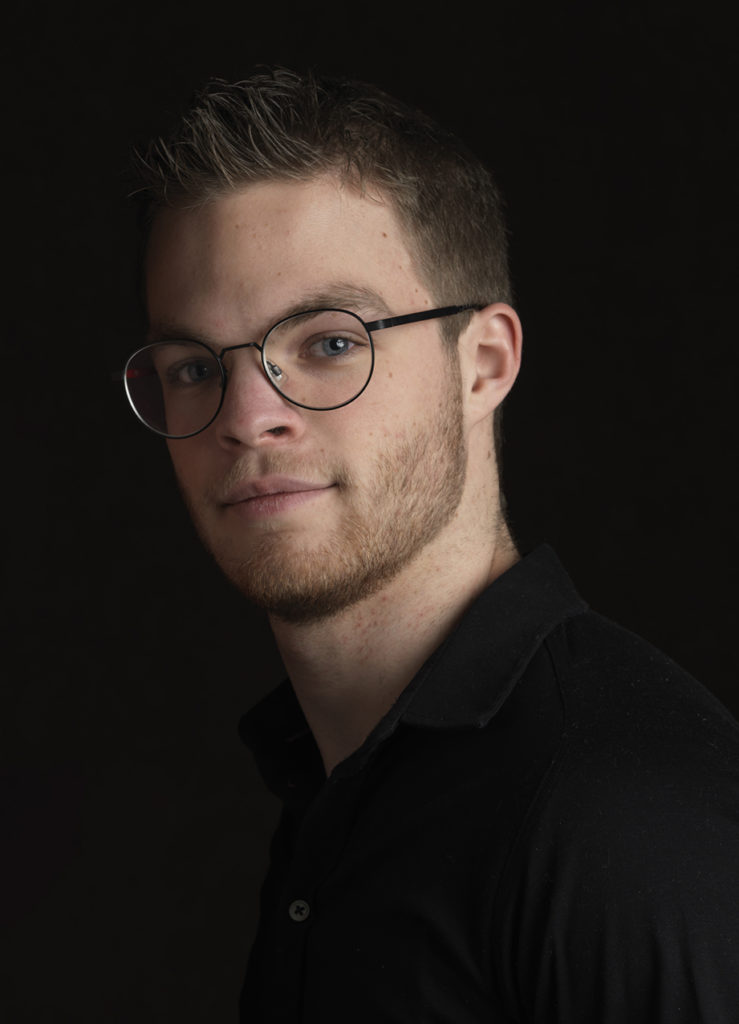
Do you know the feeling of taking a walk on your own in a peaceful forest, while letting your thoughts wander around? You slowly enter your mind palace and come along a memory from the past or stumble along a joke a friend told you earlier that week. The feeling that made me wonder about the capabilities of the human mind. For me, that feeling unknowingly planted a small but beautiful seed.
…
During my early years in life, I became aware of myself as a thinker. Not one that is loud and eccentric, but rather a thoughtful dreamer. Once I enrolled into medical school, I began to learn about these endless capabilities of the human brain, about its unimaginably complex structures and how these not only control the human body, but also create thoughts and form the soul of an individual. I had the opportunity to study these beautiful structures during anatomy classes, while the neurology and psychiatry courses taught me about the functions of the brain. This is where that small seed slowly but steadily started to sprout.
During an elective at the neuro-rehabilitation department, I came in touch with different patients and families, and was moved by all their personal stories. One in particular will always remain close to my heart: a young mother with two little boys playing on her hospital bed. Their joyful and innocent behaviour reminded me of the relationship with my brother, back when we were younger. After the father went outside with the children, we had to tell the mother that she developed a secondary-progressive form of multiple sclerosis with limited treatment options. The strong and joyful mother got very emotional and broke down completely, and this moment has forever been engraved in my mind and heart.
These are the stories that have been driving my further interest in the field of neurology. It urged me to undertake a master’s thesis with additional side projects in neurology, allowing me to further develop my knowledge of these diseases and techniques and treatments that can brighten the prognosis of patients. The seed developed into a rootling that started to see some daylight. During my internships in the last year of medical school, I learned how to localise lesions through clinical examination with additional diagnostic testing, and I learned about innovative treatment options that could change one’s life. As a result, every aspect of neurology captured me more than any other discipline could ever do.
The lessons learnt as medical students today, can change the lives of many patients tomorrow. I want to be part of a strong community of neurologists and endless interesting possibilities and capabilities of the human brain, while also striving for scientific achievements with research that could change patients’ lives. There is this intrinsic motivation to grow as a person and scientist, and with knowledge of my imperfections and the necessary hard work, I am convinced that the young plant that I am today can grow into a beautiful tree with many fruits.
“Wonder is the seed of knowledge” ― Francis Bacon
- Kristijonas Puteikis, Lithuania, 6th year student
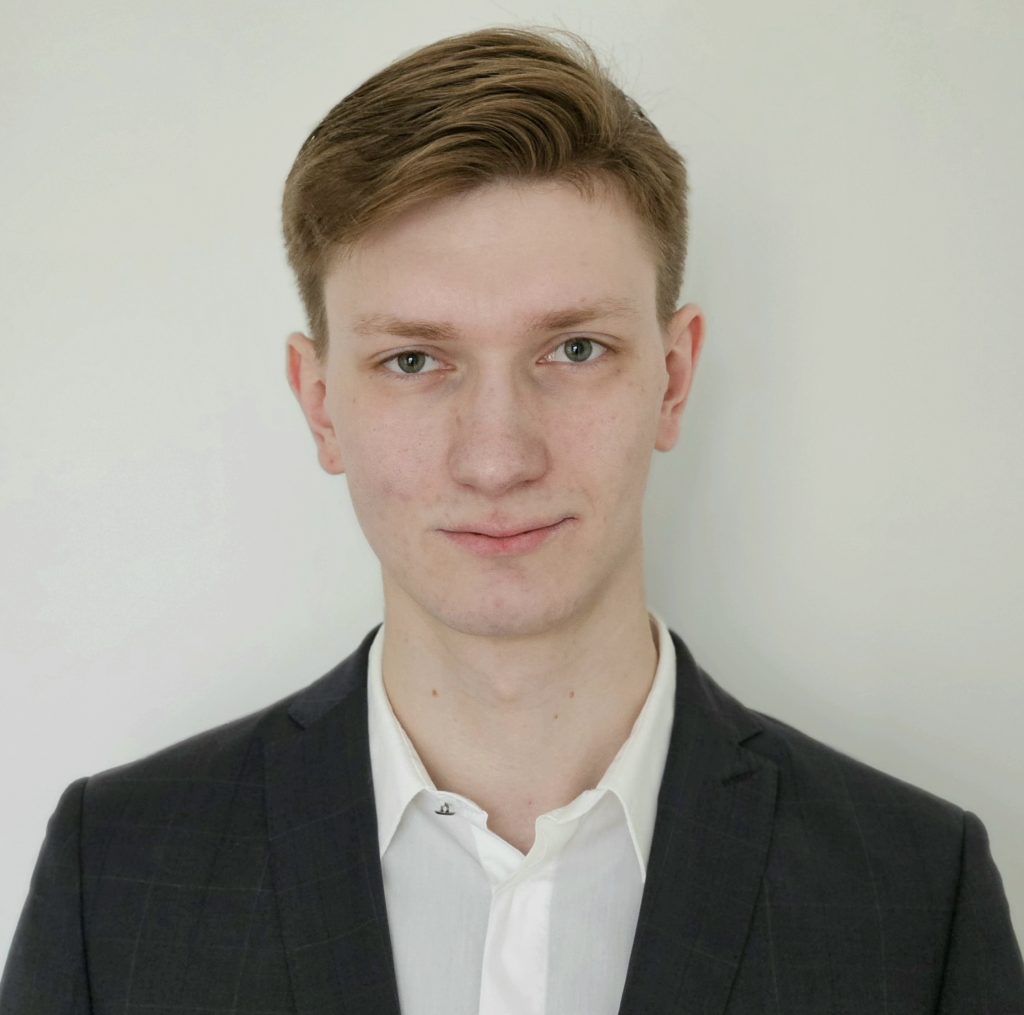
Timeless and all-consuming – my relationship with neurology
“This is puzzling… why am I unable to write normally?” – thoughts rushed through my mind one day in primary school as I suddenly just could not complete a dictation. Several minutes later, my bulletin shined in a hostile red colour signifying a very bad grade as I was mumbling incomprehensibly in response to my professor’s “what happened?”
…
I could answer the latter question only several years later, in mid-adolescence, after having experienced a plethora of similar episodes consisting of alexia, aphasia, hand, arm and face paraesthesia as well as severe head pain. I was diagnosed with migraine and even had the opportunity to undergo magnetic resonance imaging – then brought home a USB stick with the mysterious MRI pictures and curiously explored them.
The experience of suffering migraines with aura introduced me to the idea of subjectivity – it helped me understand that any experience is, in a way, just a continuous flow of stimuli filtered, processed and abstracted within my brain. And, if my brain decides to go haywire, I may truly feel something that was never present in my surroundings (e.g., a scintillating scotoma), have pain inflicted upon me and be deprived of the basic abilities that make me human – to express myself through spoken or written language. Over the years, such reflections translated into an urge to study brain disorders and seek to contribute to their alleviation. As neurology deals with possibly the most complex mechanism in the universe – the human brain – it offers the unique privilege to explore the boundaries between perception, thought, emotion, movement and behaviour as well as to study their anatomical and physiological substrates. More importantly, it has as the ultimate goal to remediate this most personal, most diverse and, arguably, most valued set of abilities that all combined define us as individuals. The prospect of contributing to such a significant field of medicine made me consider neurology as the only truly rewarding career path in medicine.
The reasoning above would appear naïve without considering what neurology has to offer young students and specialists envisioning most of their days consulting patients with severe and debilitating neurological disorders. Being in the last year of my medical studies, I now see what a short period of my life they were. However, during these past several years I was able to witness major developments in the field of neurology. These include local and clear examples, such as a novel national stroke care policy that was proven to significantly increase the use of reperfusion therapy in my country; the arrival of a new drug that has recently saved one of my best friends from frequent and burdensome migraines; and newly implemented vagal nerve stimulation, whose effects on epilepsy patient-reported outcomes I was able to investigate for my final thesis. There are many more instances where neurology has reached major breakthroughs and I firmly believe that the field will increasingly benefit from advances in fundamental and translational research, eased international cooperation as well as virtual data sharing and analysis. While it now appears somewhat unbelievable that there will soon be effective therapies for some of the complex neurodegenerative neurological disorders, recent times have already proven that new frontiers are not as far away as we may think. For me, a beginner in medicine, such an outlook begets motivation, optimism, and willingness for an in-depth engagement in neurology.
As I remain calm and confident whenever a new migraine attack comes from around the corner, I can only thank all my predecessors who elucidated the pathophysiological grounds of migraine, contributed to the creation of the pain-alleviating peppermint-flavoured triptan lyophilizate that melts in my mouth and, in a more abstract fashion, provided inspiration and hope for the future of neurology. I would therefore be honoured to preserve and extend the reach of this interesting medical specialty by any productive means, be it routine clinical work, research, or brain health promotion.
- Sara Crepinsek, Slovenia, 6th year student
Neurology, the science of the brain,
A wondrous world, a complex domain,
A realm of beauty, a mystery untold,
A universe of wonders, waiting to unfold.
The brain, the hub of human life,
A place where thoughts and dreams thrive,
A place where memories are made and kept,
A place where emotions are born and wept.
As a neurologist, my goal is clear,
To unlock the secrets of the brain, so dear,
To understand its workings, to decipher its code,
To heal the sick, and lighten their load.
The future beckons, with challenges hard,
To find cures for diseases, it is really an art,
To treat the patients, with skill and care,
To bring them hope, and help them repair.
Neurology, a field so vast,
A journey of discovery, that’s sure to last,
A path of knowledge, that leads to the light,
A journey of the mind, that’s truly bright.
So let us embrace, the beauty of the brain,
And strive to understand, its intricate domain,
Let us work together, towards a brighter tomorrow,
And bring healing and hope, to all in sorrow.
The future shines bright, with so much to gain,
To find new cures, and ease the pain,
To bring hope to those, who suffer in silence,
To unlock the mysteries and find the guidance.
- Rahul Ganguly, UK, 4th year student
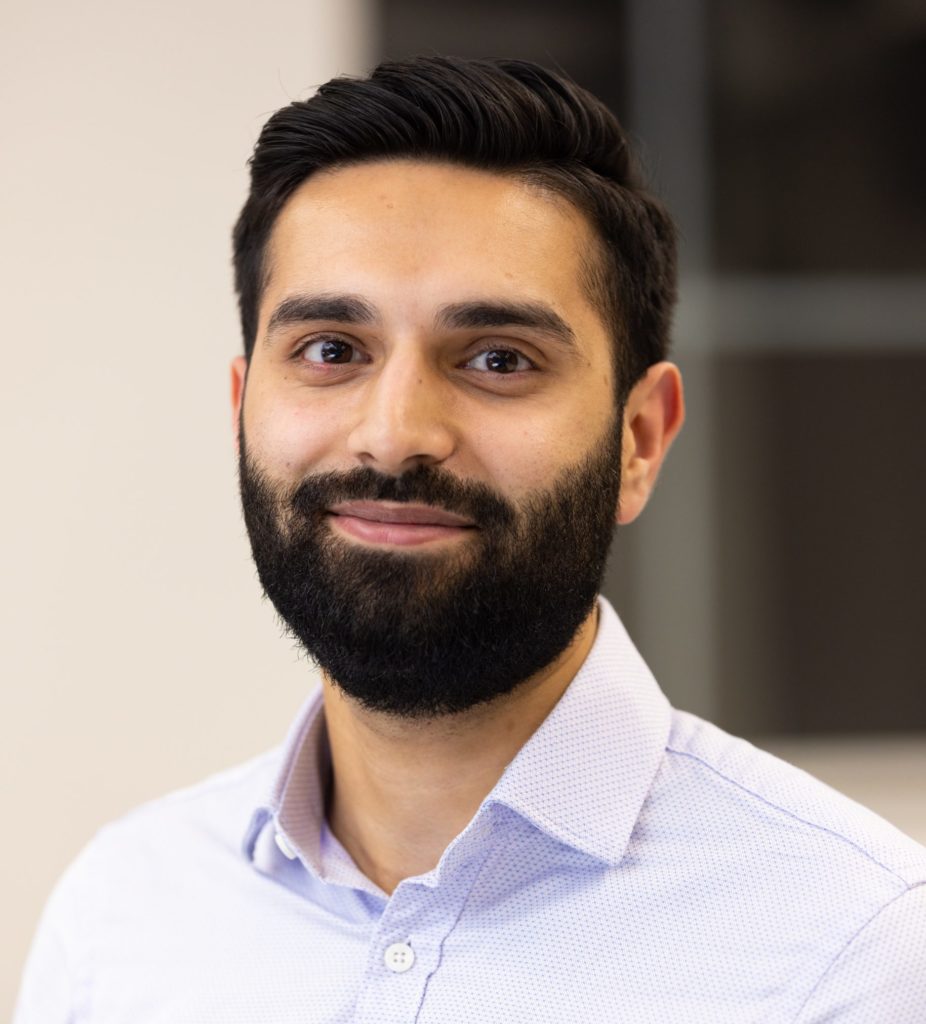
“What does this smell and taste like? What does this look like? How does this feel?” You’d be forgiven for thinking this is a culinary class. However, this is the wise neurologist simultaneously deducing a patient’s pathology whilst containing their enjoyment and fascination for the diagnostic process. They are in their element: the ultimate detective.
A loss of all sensation with spastic paralysis on the left, with a loss of pain and temperature sensation on the right. The room struggles to contain their looks of bewilderment. When others point to sorcery, the neurologist applies science and logic.
…
Armed with the knowledge of brain and spinal cord anatomy, the detective approaches the problem with mathematics and a level head. Neurological pathology is often confined to pathways and tracts where specific rules apply.
The neurologist briefly pauses before making the diagnosis of Brown-Séquard syndrome – the most likely explanation. They note down their impression and write up the investigations and management. In what seems like a flash they’ve treated and reassured the patient, all whilst leaving the room in awe as to how they did it.
The large number of clinical diagnoses, the promotion of the physical examination, and the mystic-like artform of diagnosis are attractive reasons for picking neurology. The specialty combines the beauty and complex simplicity of the human body with our teaching in anatomy, physiology, and clinical examination. That is why, for me, the humble neurologist will always be synonymous with the greatest detective, Sherlock Holmes.
There is no field of medicine that requires research more than the neurosciences. Outcomes of many neurological diseases are bleak at best. The lack of efficacious treatment combined with the chronicity of diseases make delivering the prognosis to a patient challenging. However, this field attracts individuals who acknowledge the enormity of the task at hand but who are determined to overcome the problem.
From PURA syndrome to the dementias, this branch of medicine is never-ending in its diversity and depth. There is a plethora of ground-breaking experimentation taking place, and you can be a part of it! Parkinsonism, multiple sclerosis, and stroke are just some of the conditions that can leave patients debilitated. However, the absence of a cure leaves space for even small remedies that can have a large impact and improvement on another human being’s quality of life. I saw this first-hand as a child when observing my grandfather undergo post-stroke rehabilitation. This has inspired me to become a doctor and proactive researcher striving to make a difference.
The future of medicine resides in our understanding of the nervous system. A more complete picture will enable the practical use of exciting medical technologies including brain-computer/machine interfaces. Futuristic developments that once were in the distant future are on the horizon. Patients in a vegetative state are now able to communicate with their loved ones thanks to MedTech. Stem cells can be engineered to regenerate the spinal cord after injury allowing those once paralysed to walk again. Teamwork with neurosurgeons has given back independence and dignity to patients crippled by movement disorders via the use of deep brain stimulation. Our increasing understanding of inflammatory processes and autoimmunity will soon lead to the creation of targeted gene-specific pharmacotherapies. The research possibilities are limitless and the benefit to patients invaluable.
Enthralling discoveries like brain chips raise the subject of ethics and philosophy: a topic ever-present in neurology. What are the ethical considerations of implantable brain chips? Are the brain and mind singular or dichotomous? How do action potentials result in consciousness? The neurologist not only considers the physical world but also the philosophical. I often reflect on poor outcomes in medicine. Saving a life whilst preventing deterioration may bring personal satisfaction, however intervention may not always align with patient preference. High profile lawsuits demonstrate this sentiment with cases often related to neurology.
A neurological diagnosis pertains to a difficult path for the patient affected. But one philosophy that rings true is the practice of empathy: perhaps the best intervention a physician can provide to help a patient navigate the long road ahead. To quote William Osler, “to cure sometimes, to relieve often, to comfort always”.
In conclusion, embarking on a career in neurology only, will permit you to become the ultimate diagnostician, research into the most formidable medical enigmas, and debate the age-old questions and dilemmas of time.





